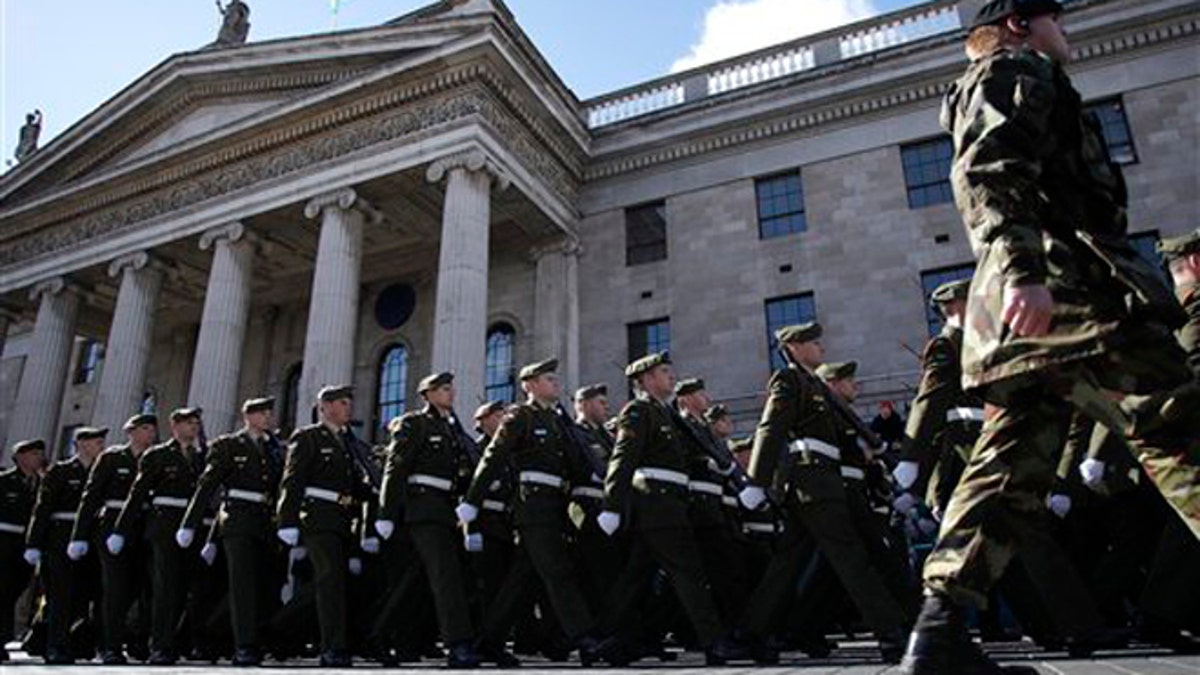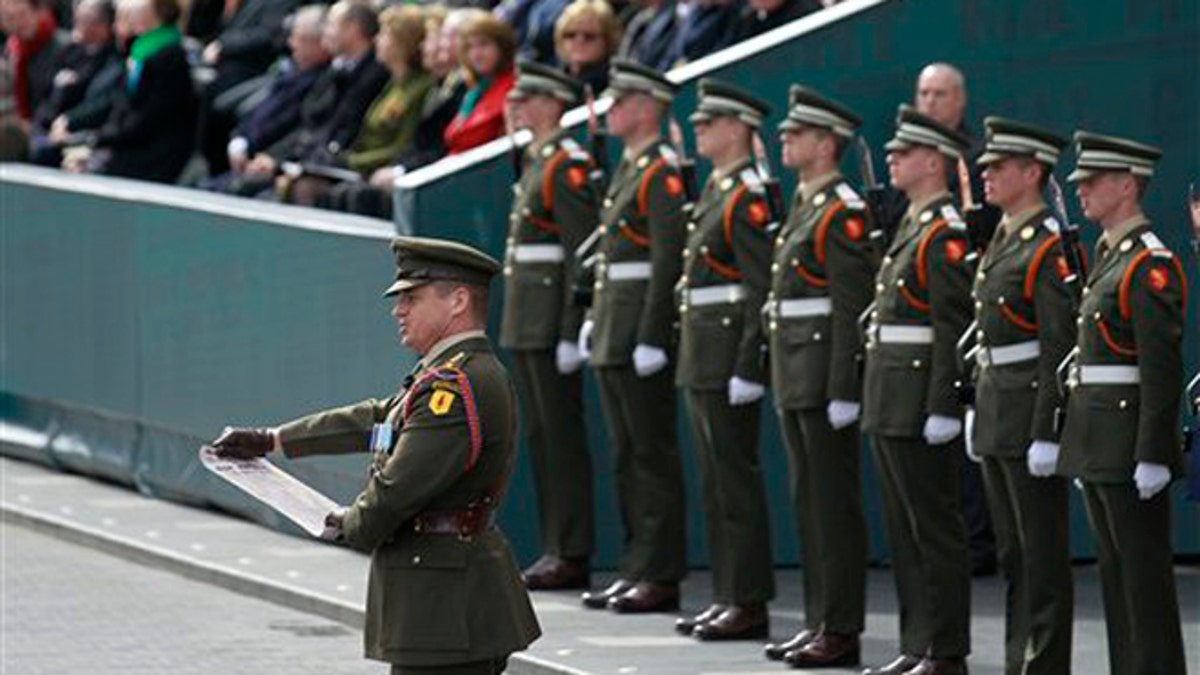DUBLIN – Thousands of soldiers marched solemnly Sunday through the crowded streets of Dublin to commemorate the 100th anniversary of Ireland's Easter Rising against Britain, a fateful rebellion that reduced parts of the capital to ruins and fired the country's flame of independence.
The Easter parade through Dublin featured military ceremonies at key buildings seized in 1916, when about 1,200 rebels sought to fuel a popular revolt against Ireland's place in the United Kingdom.
The five-hour procession paused at noon outside the colonnaded General Post Office on O'Connell Street, the rebel headquarters a century ago, where commander Padraig Pearse formally launched the revolt by proclaiming to bemused Dubliners the creation of a "provisional" Republic of Ireland.

Thousands of soldiers march through the streets of Dublin, Ireland, Sunday, March 27, 2016. (AP Photo/Peter Morrison)
A soldier in today's Irish Defence Forces, Capt. Peter Kelleher, stood in front of the restored post office Sunday to read the full, florid text of Pearse's 1916 proclamation.
"In the name of God and of the dead generations from which she receives her old tradition of nationhood, Ireland, through us, summons her children to her flag and strikes for her freedom," Kelleher said to an audience that included Ireland's leaders and scores of grandchildren of the rebels.
Many donned their ancestors' Easter Rising bronze service medals, which Ireland issued in 1941 on the rebellion's 25th anniversary.
British forces, among them many Irishmen focused on fighting Germany in World War I, were caught off guard by the seizure of largely unguarded buildings in 1916. Most officers were attending horse races in the Irish countryside. But Britain quickly deployed army reinforcements who were cheered by some locals as they marched into Dublin. Artillery based at Trinity College and a gunboat on the River Liffey which bisects the city shelled the post office and other rebel strongholds, forcing their surrender within six days.
The fighting left nearly 500 dead, most of them civilians caught in the crossfire or shot -- by both sides -- as suspected looters. Some 126 British soldiers, 82 rebels and 17 police were slain.
Many Dubliners opposed the insurrection as an act of treason in time of war, but public sentiment swiftly swung in the rebels' favor once a newly arrived British Army commander decided to execute Pearse and 14 other rebel leaders by firing squad in Dublin's Kilmainham Jail.
A 16th figure, Roger Casement, who days before the Easter Rising was caught trying to smuggle German weapons by sea to Ireland, was hanged inside a London prison.

Captain Peter Kelleher from the 27th Infantry Battalion reads the Proclamation at the General Post Office on O'Connell street, Dublin, Ireland, Sunday, March, 27, 2016. (AP Photo/Peter Morrison)
In the rebellion's immediate wake, the poet W.B. Yeats reflected Ireland's conflicted feelings about how violent nationalism appeared to be hastening Ireland's journey to political freedom but at a debatable cost. His "Easter, 1916" poem, among the most quoted works in all of Irish literature, listed the names of executed Rising commanders and concluded that Ireland had "changed, changed utterly: A terrible beauty is born."




















